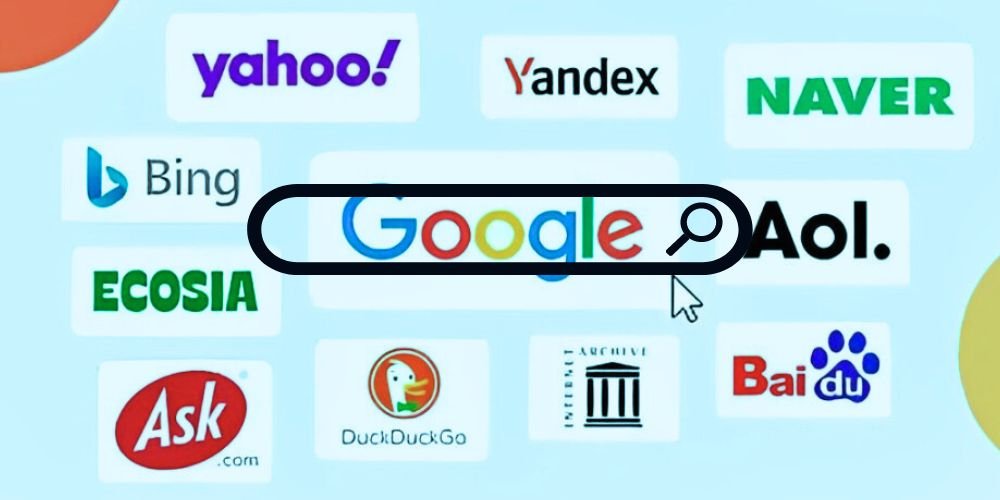Search engines serve as the gateway to the vast expanse of information on the Internet, enabling users to discover, explore, and access content quickly. This comprehensive guide explores the functionality, evolution, and impact of search engines in the digital age.
Understanding Search Engines
Search engines are software programs designed to retrieve and present relevant information in response to user queries. They crawl the web, index content, and employ algorithms to rank and display results based on relevance and quality, providing users with tailored answers to their search queries.
How Search Engines Work
Search engines operate through a multi-step process: crawling, indexing, ranking, and serving results. Crawlers, also known as spiders or bots, systematically traverse the web, discovering and collecting information from web pages. Indexed content is then analyzed and ranked based on factors such as keyword relevance, page authority, and user engagement metrics.
Evolution of Search Engine Technology
Search engine technology has evolved significantly since the early days of the Internet. From primitive keyword-based systems to sophisticated algorithms powered by machine learning and artificial intelligence, search engines have become increasingly adept at understanding user intent, context, and natural language, delivering more accurate and personalized search results.
Types of Search Engines
Search engines come in various forms, catering to different needs and preferences. General-purpose search engines like Google, Bing, and Yahoo! provide comprehensive web search capabilities. In contrast, specialized search engines focus on specific content types or industries, such as academic research, shopping, or multimedia.
Key Functions of Search Engines
Search engines perform various essential functions to facilitate information retrieval and discovery.
Information Retrieval
The primary function of search engines is to retrieve relevant information in response to user queries. By analyzing billions of web pages and documents, search engines deliver tailored search results, helping users find answers to their questions, solutions to their problems, or resources for their interests.
Content Indexing
Search engines maintain vast indexes of web content, organizing and cataloging information for efficient retrieval. Through automated crawling and indexing processes, search engines create comprehensive databases of web pages, documents, images, videos, and other digital assets, making them searchable and accessible to users worldwide.
Relevance Ranking
Relevance ranking is crucial for presenting users with the most pertinent search results. Search engines use complex algorithms to assess the relevance of web pages to a given query, considering factors such as keyword frequency, content quality, user engagement, and authority signals. The goal is to deliver highly relevant and useful results that meet the user’s information needs.
Search Engine Features and Tools
Search engines offer a range of features and tools to enhance the search experience and provide additional value to users.
Advanced Search Operators
Advanced search operators help users to refine their search queries and customize their search results. Operators like quotation marks, minus signs, and site-specific searches enable precise control over search parameters, helping users find specific information or exclude irrelevant results.
Rich Snippets and Knowledge Graphs
Rich snippets and knowledge graphs provide users with instant answers and contextual information directly in the search results. By extracting relevant data from web pages and structured databases, search engines display summaries, definitions, ratings, and other useful information, saving users time and effort in finding relevant content.
Personalization and User Preferences
Search engines leverage user data and preferences to personalize search results and recommendations. By analyzing past search behavior, location, device type, and browsing history, search engines tailor results to suit individual preferences, interests, and browsing habits, creating a more personalized and relevant search experience.
Challenges and Controversies
Despite widespread use and utility, search engines face several challenges and controversies.
Privacy Concerns
Search engines collect vast amounts of user data to personalize search results and target advertising. It raises privacy concerns regarding data security, user tracking, and the potential misuse of personal information. Balancing the need for personalized experiences with user privacy rights remains a significant challenge for search engine operators.
Misinformation and Fake News
The proliferation of misinformation and fake news online poses a significant challenge for search engines. Algorithms designed to prioritize relevance and popularity may inadvertently promote false or misleading information, undermining the credibility of search results. Search engines must employ robust fact-checking mechanisms and algorithmic adjustments to combat misinformation effectively.
Monopoly and Market Dominance
A few major search engines, notably Google, dominate the global search market, raising concerns about monopolistic practices and market power. Critics argue that dominant search engines may unfairly prioritize their products and services, suppress competition, and wield disproportionate influence over online content and commerce. Regulatory scrutiny and antitrust investigations aim to address these concerns and promote fair competition in the search industry.
Future Trends and Innovations
Emerging technologies and evolving user expectations shape the future of search engines.
Voice Search and Natural Language Processing
Voice search and natural language processing (NLP) technologies enable users to interact with search engines using spoken language, conversational queries, and voice-activated assistants. As voice-enabled devices and smart speakers become more ubiquitous, search engines invest in voice recognition and NLP to deliver seamless, intuitive search experiences.
Visual Search and Image Recognition
Visual search and image recognition technologies allow users to search for information using photos rather than text. By analyzing visual content and identifying objects, landmarks, and products, search engines can deliver relevant search results and product recommendations based on visual cues, enhancing the search experience for users exploring the visual web.
Augmented Reality (AR) Integration
Augmented reality (AR) integration enables search engines to overlay digital information and interactive content onto the physical world. By integrating AR capabilities into mobile devices and wearable technology, search engines can provide users with location-based information, real-time visualizations, and immersive experiences, revolutionizing how users interact with their environment and discover information.
Conclusion
Search engines are pivotal in navigating the vast expanse of information on the Internet, empowering users to discover, explore, and engage with digital content effectively. From information retrieval and relevance ranking to personalized recommendations and emerging technologies, search engines evolve and innovate, shaping how we access and interact with information in the digital age. As search engines adapt to changing user needs and technological advancements, they remain essential tools for information discovery, knowledge acquisition, and digital empowerment in the modern world.





